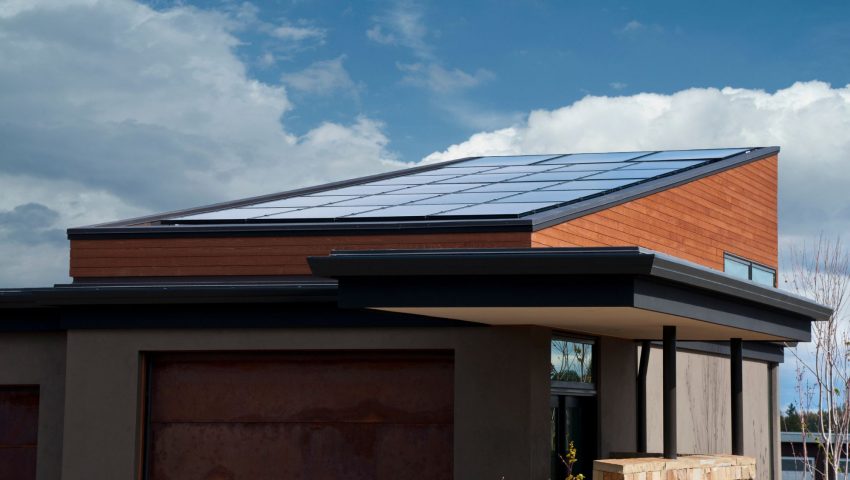This is one of the most frequently asked questions about solar energy, and unfortunately, there is no easy answer. The solar panel payback period depends on a number of factors, including the cost of the solar panels, the efficiency of the solar panels, the amount of sunlight that hits the solar panels, and government incentives.
Let’s look at some of the important factors a little more closely!
Material Costs
The cost of solar panels has fallen dramatically in recent years, making them much more affordable. However, the upfront cost is still a barrier for many people. Solar panel prices vary depending on the size, efficiency, and brand of the solar panel.
Solar panels typically have a warranty of 20-25 years, so they should last for many years after they’ve been paid off. However, solar panel technology is constantly improving, so newer panels may be more efficient than older ones.
Solar System Installation Costs
Installing solar power is not a do-it-yourself project. Solar power requires special equipment and training, so you’ll need to hire a professional installer. Installation costs will vary depending on the size and complexity of your project but expect to pay several thousand dollars for a typical residential installation.
Many people get turned off by paying for labor with any sort of household job, but rooftop solar system installation is definitely not something you want to mess around with yourself. A Solar power system can be dangerous since you are working on a roof with machinery, heavy materials, and complex electrical systems. You could permanently damage your roof. You could end up spending way more money trying to fix your mistakes. And, you will likely lose out on valuable savings on electricity bills by not configuring your solar panel system for maximum production and efficiency.
Solar Incentives
Beyond the obvious incentive to save money on electricity with solar, the government offers a federal tax credit for installing solar panels and solar power systems, which can help offset the upfront cost and shorten the solar payback period. The solar tax credit is usually 30% of the cost of the solar system, and it can be applied to both residential and commercial systems. Some states also offer additional solar incentives.
Solar Panel System Operational Efficiency
Solar panels need sunlight to produce electricity, so their output, and the solar panel payback, will vary depending on the amount of sun they receive. Solar panels in sunny areas will produce more electricity than those in shaded areas. The time of day also affects solar output, as do seasons and weather conditions.
All of these factors make it difficult to give a definitive answer to the question of how long your solar payback period will be. However, there are some estimates that can provide a general idea of how your solar system will perform.
Solar Panel Payback Period
One study found that the average solar payback period for residential solar panels is about 8-12 years. This means that, on average, it will take 8-12 years for the solar panels to produce enough electricity to offset the initial cost. However, this solar panel payback period may be shorter in sunny areas and longer in shaded areas.
Another study found that the solar panel payback period for commercial solar panels is about 5-9 years. This is shorter than the solar panel payback period for residential solar panels because commercial solar panels are usually larger and can be more efficient. You can find more information about this by visiting the National Renewable Energy Laboratory website.
How to Locate a Solar Company Near Me
You’ve made the decision to switch to solar power; congratulations! The next step is finding a reputable solar installer in your area. Here are some tips on how to find a qualified solar installer:
- Ask your friends and family if they have any recommendations.
- Check out online reviews.
- Make sure the solar installer is licensed and insured.
- Get multiple quotes from different solar installers.
Now that you know more about how long it takes for solar panels to pay for themselves, you can make an informed decision about whether or not solar power is right for you. For a jump start on your solar search, check out Denver’s Peak to Peak Roofing & Exteriors. Their professional contractors have the inside scoop on solar brands and installation and can get you a free solar panel cost estimate today!
Does Solar Power Make Dollars and Sense?
There is no one-size-fits-all answer to the question of how long it will take for solar panels to pay for themselves. The solar panel payback period will vary depending on the system’s cost, the solar panels’ efficiency, the amount of sun the solar panel system receives, and other factors. However, most solar panels will start to save you money after about 8-12 years.
If you’re looking to make the switch to a solar panel system to save on electricity costs, contact a local company like Peak to Peak Roofing & Exteriors today to get a free solar installation inspection and more information about solar power for your home.

